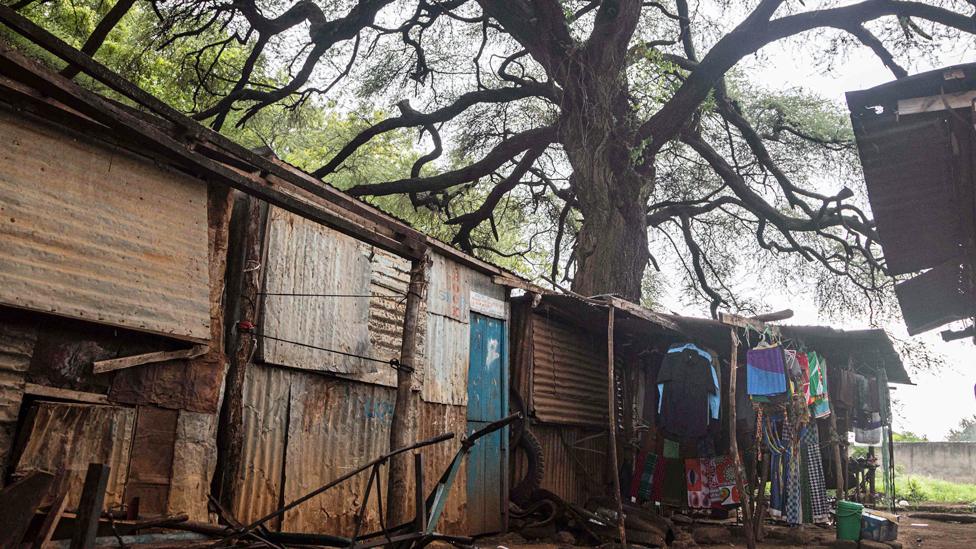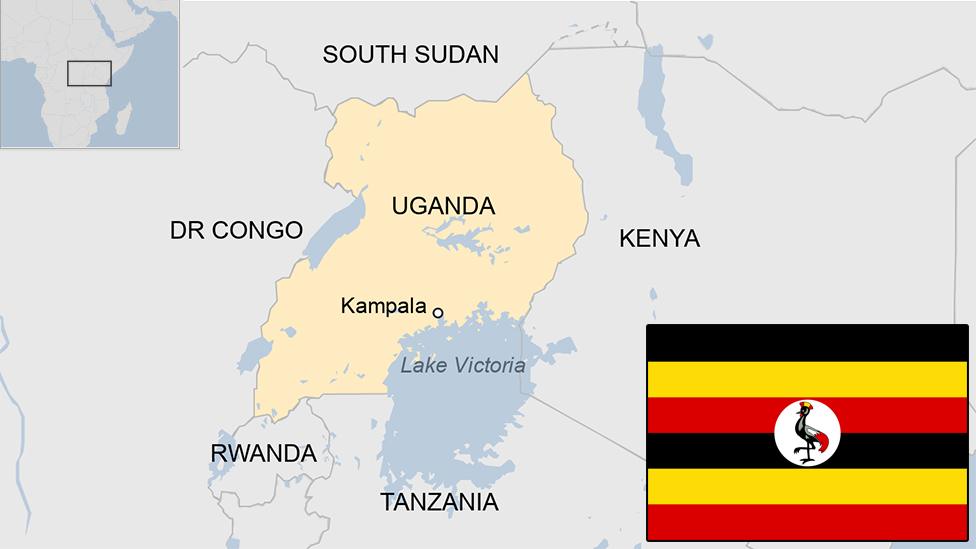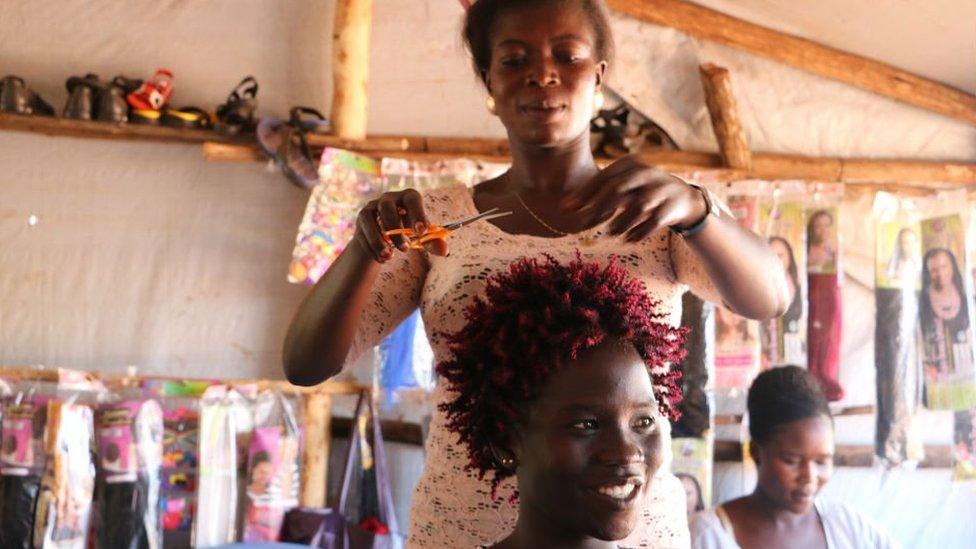Uganda's Mary Goretti Kitutu to spend Easter in jail over roofing-sheets scandal
- Published

Lawmaker Mary Goretti Kitutu Kimono arriving at court
A Ugandan cabinet minister is to spend Easter in jail after being charged over a scandal involving the theft of thousands of metal roofing sheets.
They were intended for vulnerable communities in the north-eastern Karamoja region.
Mary Goretti Kitutu Kimono, the minister for the region, pleaded not guilty in court but was denied bail.
At least 10 other senior government figures are alleged to have received some of the stolen corrugated iron.
These include the vice-president, the prime minister, the parliamentary Speaker and other ministers, according to the inspector general of government.
Some of them told a parliamentary committee investigating the corruption scandal, involving 14,500 missing iron sheets, that they had not asked for them.
The prime minister has apologised and urged other officials to return the sheets. Speaker Anita Among told the house that she had returned the ones she had received.
One minister was recently forced to remove some from the roof of his goat shed, local media reported.
Karamoja has for decades faced persistent droughts and flooding when it rains, leaving many in the semi-arid north-eastern region dependent on aid.
'Not true'
Mrs Kitutu will remain in custody until next Wednesday. It is alleged that instead of distributing the roofing materials to Karamoja communities, she gave them to her relatives and officials.
"I have understood the charge and it's not true," she responded in court, speaking firmly.

Iron sheeting is commonly used in Uganda for makeshift constructions and as roofing
She has been charged alongside her brother, Michael Naboya Kitutu, who pleaded not guilty to receiving 100 of the corrugated iron sheets.
The minister's court appearance was highly anticipated. On arrival, she covered her head and face with a piece of cloth to shield herself from the clamouring media.
Her lawyer had applied for bail, arguing that she was a high-profile senior citizen, had medical complications and would not interfere with prosecution witnesses.
But the prosecution fought for her to remain in custody, telling the court that Mrs Kitutu had prevented her mother, in whose house some sheets were recovered, from recording a statement to the police.
Her sister-in-law, niece and daughter-in-law, all alleged to be involved in the scandal, are on the run.
Mrs Kitutu rose to prominence as an environmental scientist, and was involved in mapping her home region in Mt Elgon, which is prone to landslides.
She became an MP in 2016 and has held other cabinet posts, including the energy and minerals portfolios.
Corruption scandals involving high-profile government officials are common, but it is rare for them to resign or be sacked.
Communications Minister Chris Baryomunsi said any decision on Mrs Kitutu's future would be taken after police investigations had been concluded.
"Irrespective of who you are, you have to face the law," he said.
President Yoweri Museveni has called for the prosecution of all those involved.
No other officials have yet been charged over the scandal.
Critics have previously complained that only low-ranking figures are prosecuted following corruption investigations.
Related topics
- Published26 April 2023

- Published4 July 2014

- Published17 July 2011
- Published7 November 2017
